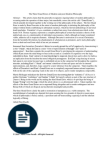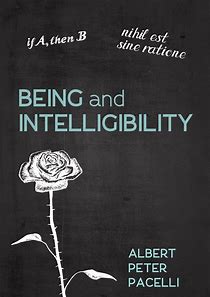Papers
 "The Efficient Disequilibrium: A New Theory of the Business Cycle" claims that business cycles are not caused by shocks or exogenous
factors but instead reflect endogenous, dynamic, and efficient allocation
of income between current consumption and investment for increased
consumption in the future. The article proposes the Augmented NIE Model
Business Cycle, which is based on the simple Keynesian National Income
Equilibrium equation but includes the potential return on investment
(PRI) and the time preference for consumption (R) as the dynamic features
of the economy. The article shows that because a free market will never
allow a persistent difference between the two variables (PRI-R Differential),
investment and income will continually fluctuate under the constraint of R.
The article includes a narrative description of the phases of a model,
continually progressing economy (CPE), model-testing using U.S. economic data
from 1962 Q1 to 2024 Q3, and dozens of charts supporting the theory. The article
concludes with policy recommendations based upon the interrelationship of the
Augmented NIE Model Business Cycle variables aimed at restraint and open
assessment of the likely consequences of intervention. The article is available
for downloading by clicking on the "Download" button below.
"The Efficient Disequilibrium: A New Theory of the Business Cycle" claims that business cycles are not caused by shocks or exogenous
factors but instead reflect endogenous, dynamic, and efficient allocation
of income between current consumption and investment for increased
consumption in the future. The article proposes the Augmented NIE Model
Business Cycle, which is based on the simple Keynesian National Income
Equilibrium equation but includes the potential return on investment
(PRI) and the time preference for consumption (R) as the dynamic features
of the economy. The article shows that because a free market will never
allow a persistent difference between the two variables (PRI-R Differential),
investment and income will continually fluctuate under the constraint of R.
The article includes a narrative description of the phases of a model,
continually progressing economy (CPE), model-testing using U.S. economic data
from 1962 Q1 to 2024 Q3, and dozens of charts supporting the theory. The article
concludes with policy recommendations based upon the interrelationship of the
Augmented NIE Model Business Cycle variables aimed at restraint and open
assessment of the likely consequences of intervention. The article is available
for downloading by clicking on the "Download" button below.
 "On The World Beyond (A Summary of Transcendent Realism)" summarizes the philosophy first presented in Being and Intelligibility and includes some clarifications and new ideas. Transcendent realism is a
theistic philosophical system which holds that reality comprises physical and
metaphysical entities, including morally conscious souls and God, as the creative
and sustaining explanation of the being of beings ("Being") and moral
obligation. The three central theses of the philosophy are that (1) Being and the
intelligibility of Being are self-same, reducible to logic, and logically necessary,
(2) absolute nothingness is incoherent because it entails the absence of the rules of
its own conception, and (3) human rational experience is not materially reducible and
includes direct and inferential experience of metaphysical Being. Some of the ideas
developed in this summary are: (A) that the presuppositions of objective reason include
a self-transcendent, knowing soul and the logicality of Being; (B) humankind is a
self-concerned, substantive, psychosomatic unity whose Being is being-toward-God, whose
soul exists not in, but alongside, the external world, and whose body is the physical
manifestation of the soul's relation to the external world; (C) the logicality of
Being implies the existence of the one and only God as its Supreme Principle and as
Agape (unqualified good will), the definitionally good, self-intending source of the
moral obligation of self-transcending souls; and (D) humankind's fundamental
obligation, as the agent of God's self-intending good will and the being who brings
morality into the world, is to act with agape to all. The article is available for
downloading by clicking on the "Download" button below.
"On The World Beyond (A Summary of Transcendent Realism)" summarizes the philosophy first presented in Being and Intelligibility and includes some clarifications and new ideas. Transcendent realism is a
theistic philosophical system which holds that reality comprises physical and
metaphysical entities, including morally conscious souls and God, as the creative
and sustaining explanation of the being of beings ("Being") and moral
obligation. The three central theses of the philosophy are that (1) Being and the
intelligibility of Being are self-same, reducible to logic, and logically necessary,
(2) absolute nothingness is incoherent because it entails the absence of the rules of
its own conception, and (3) human rational experience is not materially reducible and
includes direct and inferential experience of metaphysical Being. Some of the ideas
developed in this summary are: (A) that the presuppositions of objective reason include
a self-transcendent, knowing soul and the logicality of Being; (B) humankind is a
self-concerned, substantive, psychosomatic unity whose Being is being-toward-God, whose
soul exists not in, but alongside, the external world, and whose body is the physical
manifestation of the soul's relation to the external world; (C) the logicality of
Being implies the existence of the one and only God as its Supreme Principle and as
Agape (unqualified good will), the definitionally good, self-intending source of the
moral obligation of self-transcending souls; and (D) humankind's fundamental
obligation, as the agent of God's self-intending good will and the being who brings
morality into the world, is to act with agape to all. The article is available for
downloading by clicking on the "Download" button below.
 "The Three Grand Errors of Modern (and Post Modern Philosophy)" claims that the generally‐recognized, ongoing failure of modern philosophy is
occurring under the operation of three major, but remediable, errors (the article calls
"Grand Errors"), which naturally developed together in the working out of the
philosophy of the subject and further that the reestablishment of metaphysics depends
first upon securing the two grounds of objective reason upon which all philosophy is
based, namely, a persistent and self-transcending cognizing-I and the inherent logicality of
the being of beings. The article is available for downloading by clicking on the
"Download" button below.
"The Three Grand Errors of Modern (and Post Modern Philosophy)" claims that the generally‐recognized, ongoing failure of modern philosophy is
occurring under the operation of three major, but remediable, errors (the article calls
"Grand Errors"), which naturally developed together in the working out of the
philosophy of the subject and further that the reestablishment of metaphysics depends
first upon securing the two grounds of objective reason upon which all philosophy is
based, namely, a persistent and self-transcending cognizing-I and the inherent logicality of
the being of beings. The article is available for downloading by clicking on the
"Download" button below.
Books
 Being and Intelligibility is a philosophical treatise
on the meaning of being in its two senses. The book explores the most originary
ontological question, namely, “what do we mean when we say that something is?”,
and also the most originary existential question, namely, “what is the meaning of
human experience?”, in each case, by reference to a fundamental principle of being and
intelligibility, which, following the pre-Socratics, is called the Logos. The book argues
that all rational experience is of objects which are at root a unity (ground) of relations
(predicates) which include sequence, magnitude, and proportionality. The central thesis of
Being and Intelligibility is that the beingness of beings (“Being”) and
intelligibility are strictly self-same and that, because nothingness (i.e., absolute
not-Being) entails the absence of the rules of its own conception, it is self-contradictory
and unintelligible, with the result that Being is logically necessary. Select chapters are
available for download by clicking on the button below.
Being and Intelligibility is a philosophical treatise
on the meaning of being in its two senses. The book explores the most originary
ontological question, namely, “what do we mean when we say that something is?”,
and also the most originary existential question, namely, “what is the meaning of
human experience?”, in each case, by reference to a fundamental principle of being and
intelligibility, which, following the pre-Socratics, is called the Logos. The book argues
that all rational experience is of objects which are at root a unity (ground) of relations
(predicates) which include sequence, magnitude, and proportionality. The central thesis of
Being and Intelligibility is that the beingness of beings (“Being”) and
intelligibility are strictly self-same and that, because nothingness (i.e., absolute
not-Being) entails the absence of the rules of its own conception, it is self-contradictory
and unintelligible, with the result that Being is logically necessary. Select chapters are
available for download by clicking on the button below.